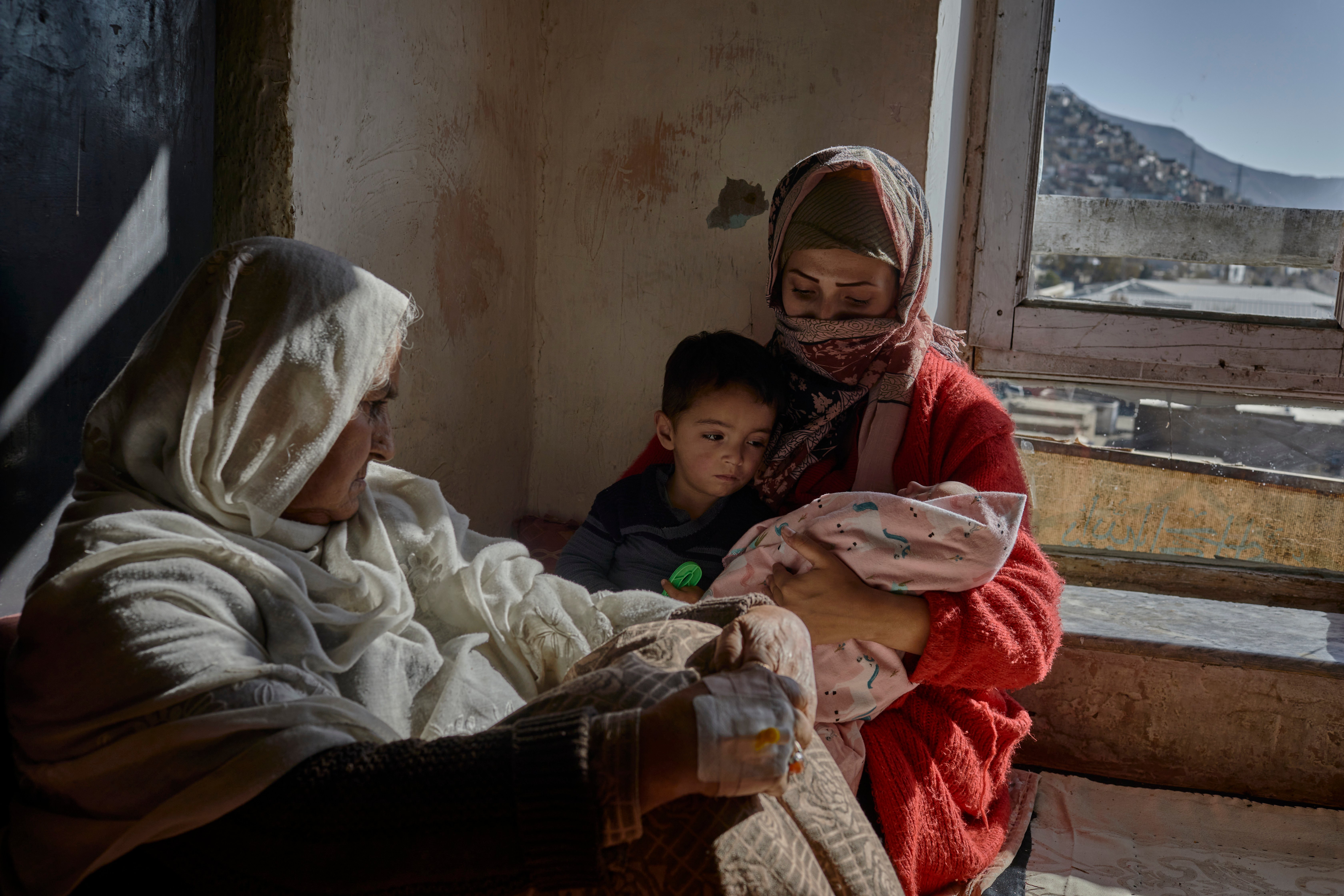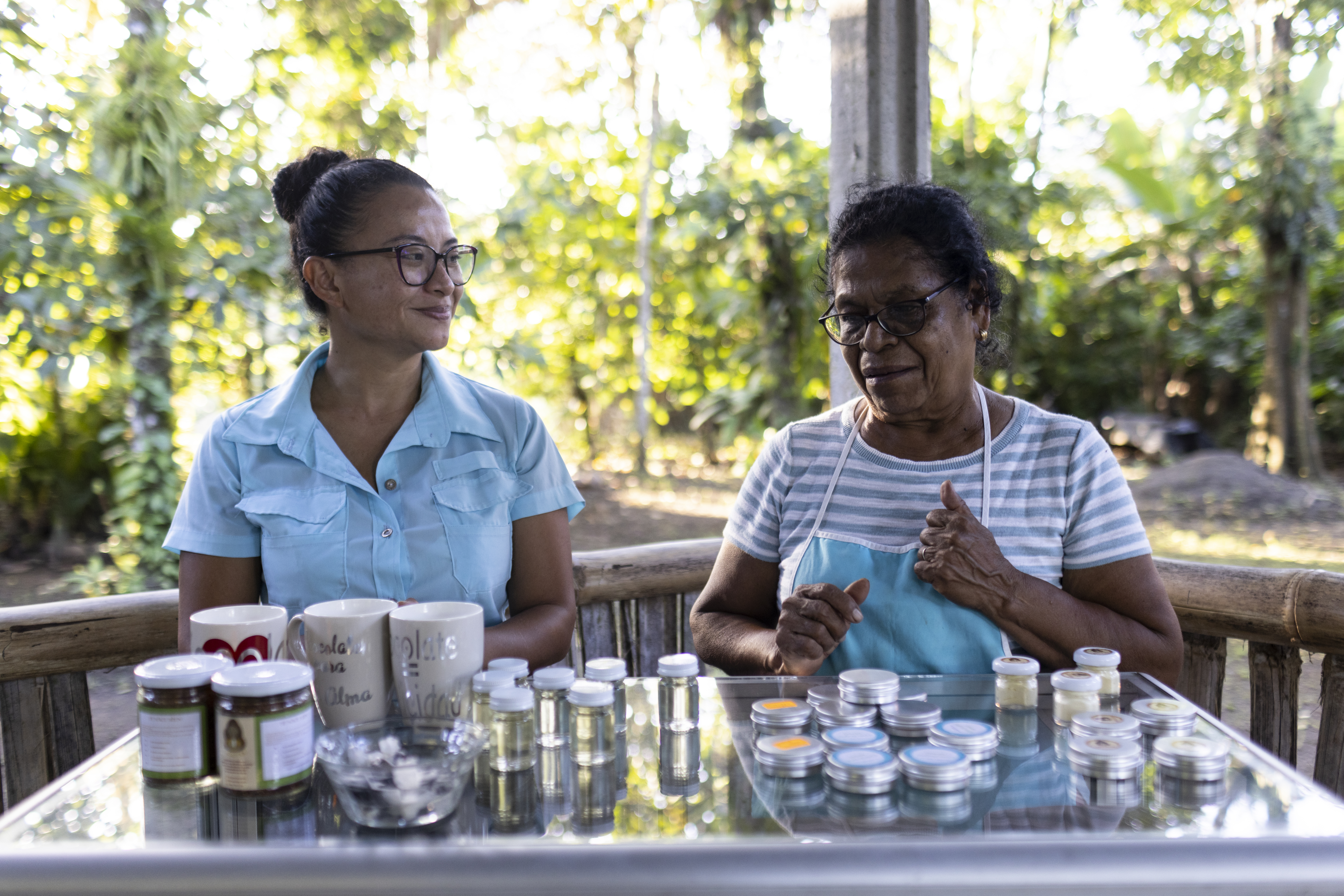FYR Macedonian woman dubbed 'Refugees' Angel' by those on the 'Balkan route'
FYR Macedonian woman dubbed 'Refugees' Angel' by those on the 'Balkan route'

GEVGELIJA, FYR Macedonia, July 30 (UNHCR) - Exhausted refugees walking with nothing but a backpack along railway tracks, some with confused small children clinging onto their chests; pregnant women making their way through scorching temperatures, fighting fatigue, blisters, and above all sorrow. This was the view from Lenche Zdrakin's window.
She witnessed these scenes for the first time two years ago, when foreigners began to stream by her house, a few metres from the railway tracks that connect the south and north of her home country, the Former Yugoslav Republic of Macedonia.
Lenche, 48, an administration and finance manager of a local TV station, lives with her husband and two sons in the town of Veles, located right in the middle of what is called the "Balkan route", which has been used for two years by an ever increasing number of refugees on an agonizing odyssey from Greece, through FYR Macedonia and Serbia, to Hungary - the gateway to their desired destinations in northern and western EU states.
Once Lenche started to talk to the unlikely travellers and learned about the reasons why they had left war-torn countries like Syria, Iraq and Afghanistan and the circumstances surrounding their long, perilous journeys, her human instinct immediately told her that she had to help.
"Seeing them crash in front of my home, seeing them faint, seeing their frozen legs with wounds, I did what I had to do. If anyone was in my position, they would do the same. Human life does not have a price."
She and her family first provided them with water, tea and some food. As the groups grew bigger, Lenche had to buy extra bread and even gave them all the food her family had preserved for the winter. As the temperatures rose in the springtime and water became a necessity, Lenche also started buying water. When it became too expensive to go on buying bread for refugees every day, she started to bake it herself.

Even after all this, she soon realized that everything she did was too little. "Every day I was thinking how I would get through the next day and how I could help them. I was trying to keep the budget low and to be practical," she explained.
It took a year and a half until her compatriots, organizations and media learned about Lenche's selfless humanitarian work, and soon her house became a humanitarian hub in Veles. Locals now call it the "House of Hope".
It spawned a civic initiative which grew quickly, via social media, into a nationwide one.
"I instantly felt relieved, since help was coming from everywhere," she says. "In a short while, the hallway in my house became a storage room."
UNHCR staff also learned about Lenche's efforts and visited her to offer assistance. "They saw that I needed help and soon enough, essential goods such as water, biscuits and hygienic packages were delivered to my house," she says.
Through the national Red Cross, UNHCR also secured the daily delivery of bread from the local bakery to Lenche's house.
To find a response to the daily influx of up to 1,000 refugees that is dramatically overstretching the Balkan state's reception capacities, in June the parliament in FYR Macedonia changed the asylum law, granting people who intend to seek asylum 72 hours upon entering the country to move legally, use public means of transport, and apply for asylum.
Refugees are no longer forced to hide and walk at night using dangerous routes, on the highway and along the railway tracks, exposed to criminal gangs and train accidents, which claimed 28 lives in the six months from last November.
The refugees no longer pass by Lenche's house, but that has not changed her sincere motivation to help people in need. Almost every day she travels from her home to the town of Gevgelija, 110km away, on the border with Greece, the first stop for the refugees entering FYR Macedonia. She walks through a sea of exhausted, hungry and thirsty refugees resting at the Gevgelija train station, sharing water, food, clothes, hygienic items and diapers for the babies.
"After everything we've been through, this woman is like an angel to us," one of the refugees says, thanking her for a bottle of water.
But Lenche sees nothing extraordinary in her deeds "All of us could do that. Sometimes, money is not necessary to help someone. Sometimes, it's just about waving at them or offering them a smile to give them strength."
Story by Ljubinka Brashnarska and Neven Crvenković









